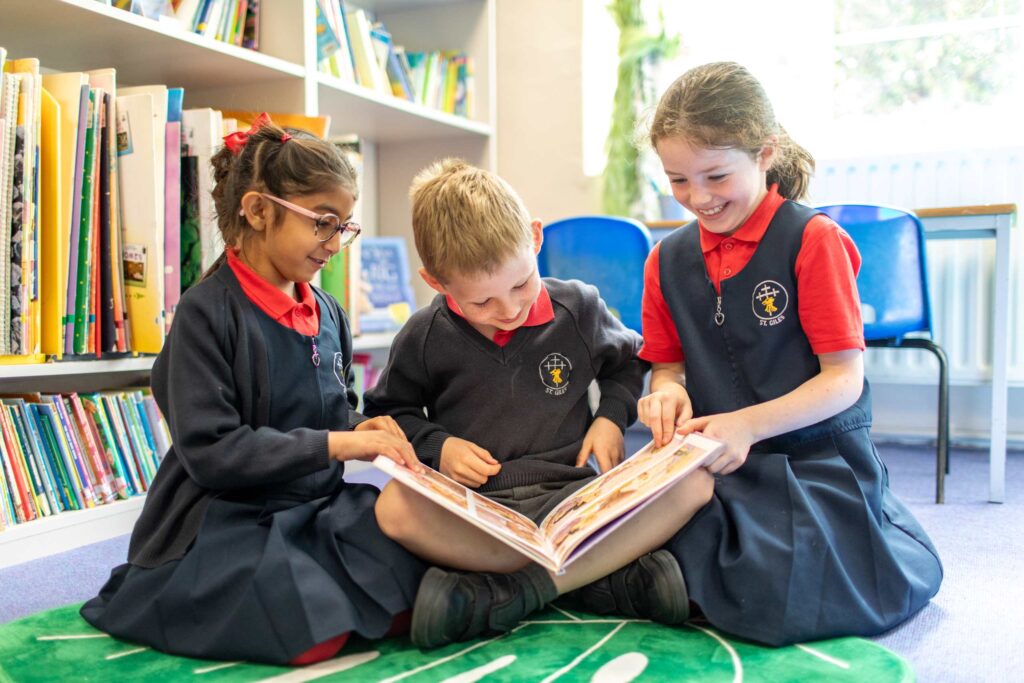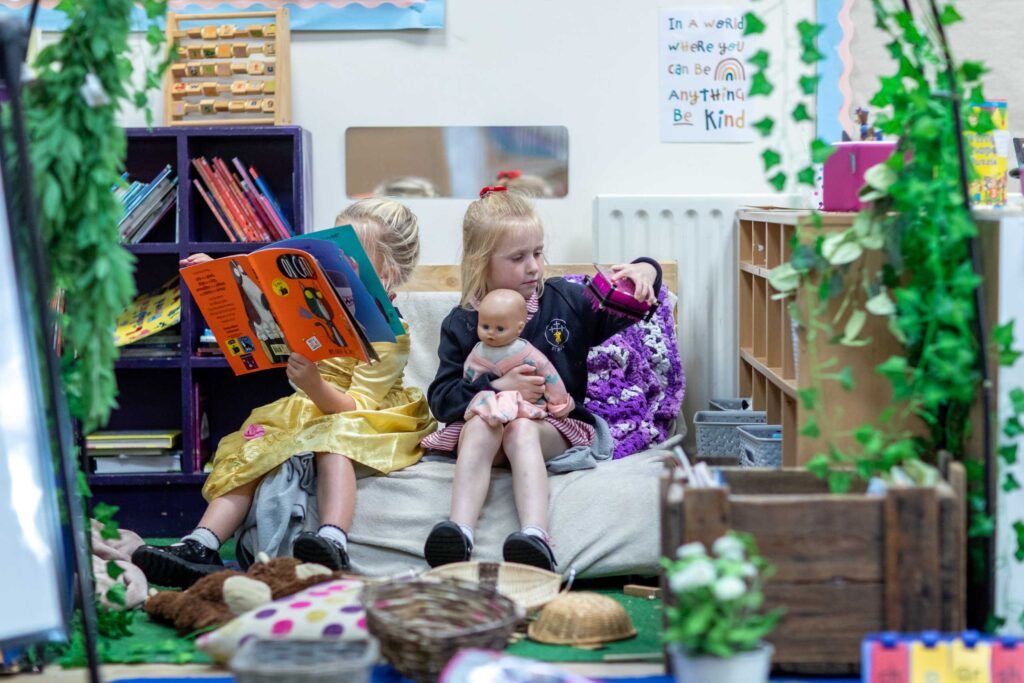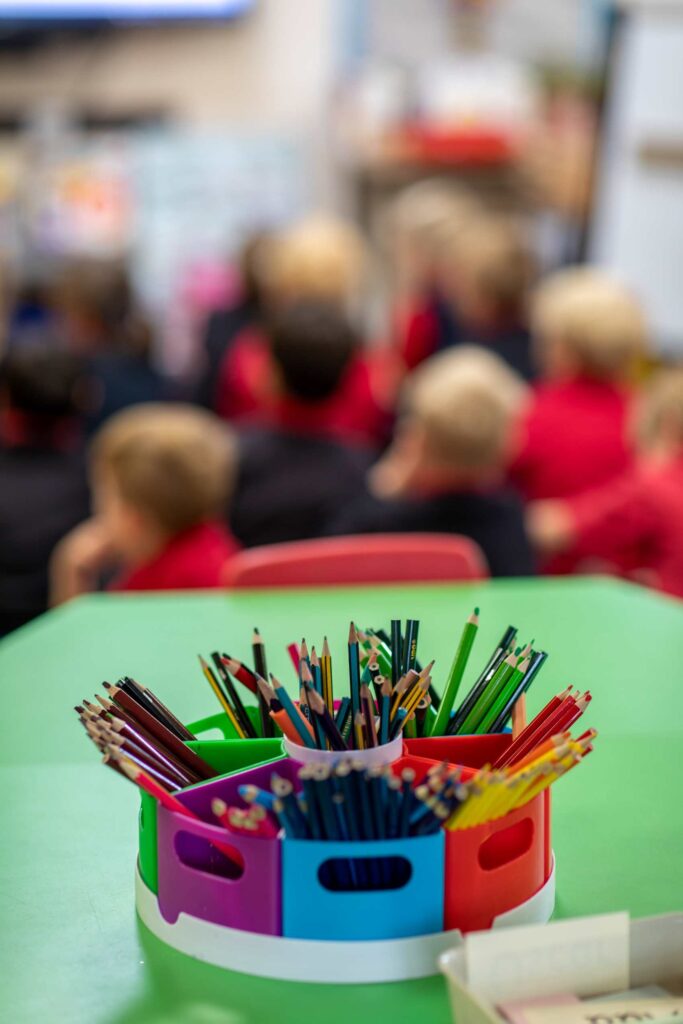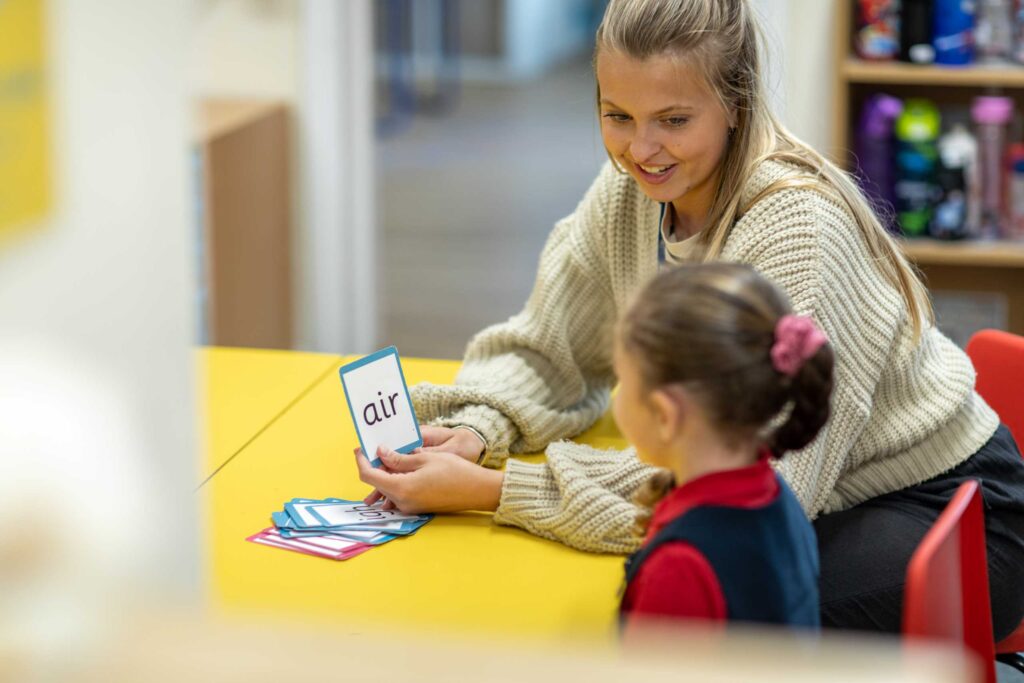ENGLISH AT ST. GILES'

Children at St Giles’ are fully immersed in reading on arrival in school! We tell stories, act out stories and enjoy a variety of genres. In the early stages of reading, books are matched to the sounds that children know. Each child is given a home reading record book where parents are asked to record books that are read. The teacher will use the diaries to provide evidence of pupil’s reading habits.
Specific Aims for Reading:
- to achieve sound independent reading in all pupils
- to enable children to take pleasure and meaning in reading
- to introduce children to a range of challenging literature and non-fiction
- to develop children’s research and retrieval skills
- to help children to read critically and reflectively
These aims are achieved through the following teaching methods and approaches to reading.
Foundation Stage – During the early years great emphasis is placed on ‘immersing’ children in stories, poems and early non-fiction books, so that they develop an awareness of story and basic book knowledge. We also draw their attention to the features of print and its uses in everyday life.
Through sharing of books, children are encouraged to read with us, re-tell stories, remember key words and to work out words using systematic synthetic phonics, picture cues and context. This work is supported through the use of ‘Big Books’, group readers, and individual readers in which we introduce and reinforce reading strategies.
The Developing Reader – Regular guided and individual reading develops children’s confidence and ability to read independently. Children continue to be taught reading strategies including the appropriate use of phonics (through the Letters and Sounds programme – Little Wandle), ‘look and say’, context and picture cues.
The Independent Reader – Independent readers continue to read in ability-based groups. To develop higher order skills, children are encouraged to share ideas and recommendations about different types of books, authors and genres.
Planning and Organisation – Every child reads with an adult in school on a regular basis. We value the support of volunteers, particularly with regard to reading. Children are encouraged to take home reading books daily, to be shared on a one-to-one basis with parents. These will generally be phonically decodable books and a book for sharing. Children also borrow books from our library.


Specific aims for spelling:
- remember and spell common exception words in the English Curriculum
- be taught a range of strategies to spell unknown/unfamiliar words
- have confidence in their ability to spell and therefore write with fluency.
At St Giles School we aim to teach children to achieve these aims through an early structured phonics programme (Little Wandle). The curriculum is implemented through the following specific objectives:
- to learn all letter sounds (phonemes)
- to learn all letter formations (graphemes)
These Aims are achieved by:
- following a consistent Phonics programme
- showing the link between writing and spelling through Little Wandle
- teaching spelling by familiarising children with regular spelling patterns
- teaching ‘tricky’ words through the Little Wandle approach
Writing is an essential tool for life. We use the ‘Talk for Writing’ approach which enables children to read and write independently for a variety of audiences and purposes. We ensure that the Early Learning Goals and Key Stage One objectives for writing are fully implemented through the following aims and practices, so that the children can successfully use this important tool in all areas of the curriculum and life:
- to achieve fluent, independent and confident writing in all pupils
- to develop children’s understanding of the purposes of writing
- to introduce children to a range of writing formats, styles, purposes and audiences
- to help children write critically, reflectively and imaginatively
- to develop children’s planning, drafting and reviewing skills
- to develop use of and understanding of punctuation and grammar
- to use phonic knowledge and spelling rules
- to demonstrate the links between talking, reading and writing
- to use rich and varied vocabulary
- to develop composition and effect
- to introduce children to rich story literature
- to write across the curriculum and for real purposes


